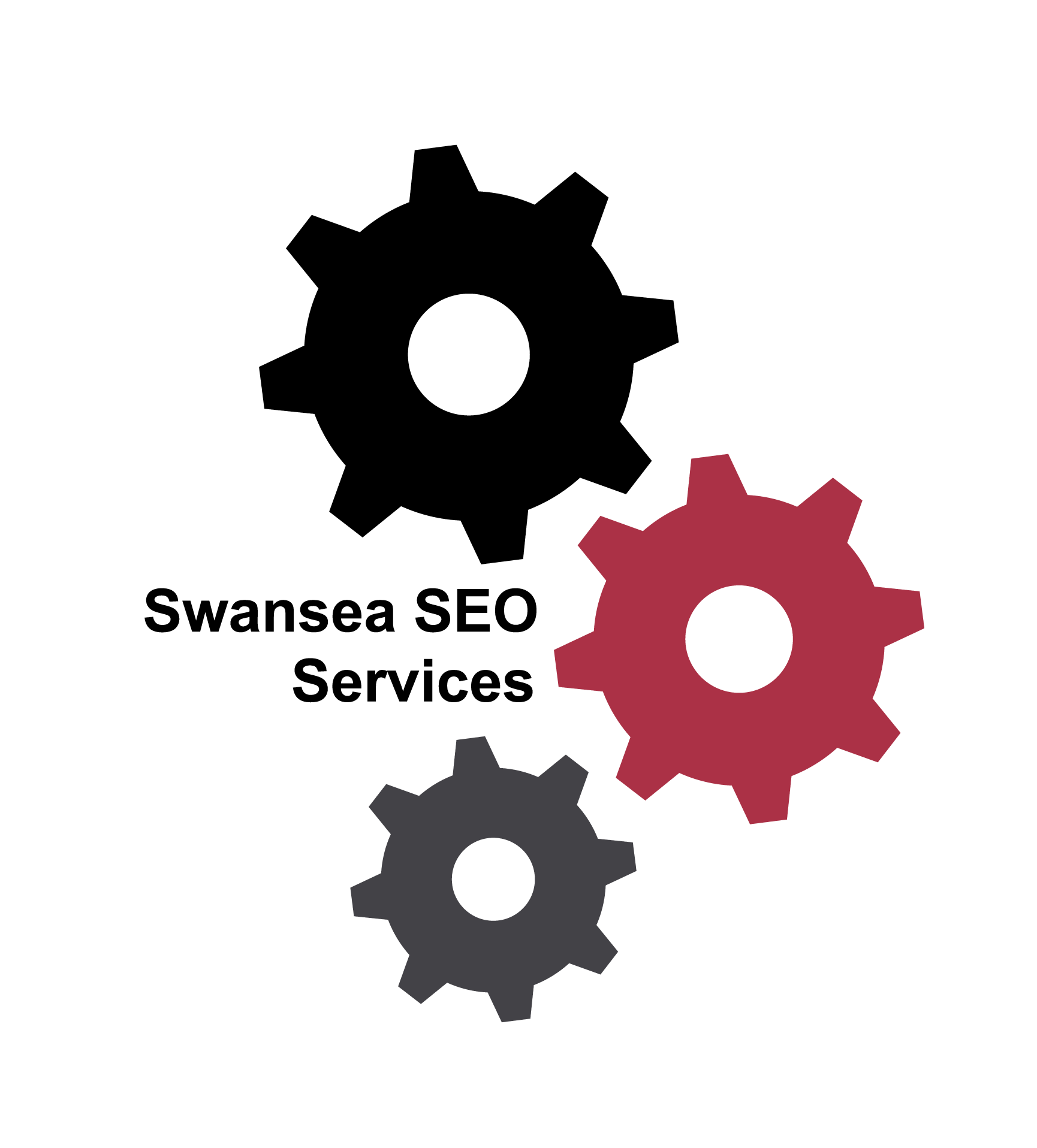TL;DR:
- Setting goals in social media marketing helps shape actions and keeps efforts on track. One common goal is increasing brand awareness to boost future sales.
- Social media platforms can help generate leads and sales, contributing to long-term business success.
- Choosing the right social media platform depends on where the target audience hangs out. Knowing the audience well helps in creating content they'll love.
- Each social media platform contributes differently to a marketing strategy. Features of platforms like Instagram and LinkedIn can be used to target specific market segments.
- Engaging content on social media fosters brand loyalty. Visual content and storytelling are particularly effective.
- Optimizing social profiles, personalizing marketing, and using user-generated content can significantly boost a company's online presence.
- Effective online community management includes engaging often and actively, sharing valuable content, and handling feedback professionally.
- Integrating social media with traditional marketing enhances reach, while leveraging influence partnerships can boost brand visibility.
- Monitoring success and making improvements based on analytics are key to a successful social media strategy. Using hashtags and respecting legal and ethical issues are also essential.
- Scheduling and automation tools aid in maintaining consistent social media presence, leading to improved engagement and a stronger bond with the audience.
Thinking of underplaying social media marketing? Wait. This comprehensive guide shatters misconceptions, unveils the real value of social media, and redefines its role in business growth. Leapfrogging into the competitive digital world, it's not just about survival, but standing out, effectively communicating with your audience, and propelling your brand into success. Ready to turn your business into a social media success story? Dive in!
What is the role of setting goals in social media marketing?
Setting goals is key in any social media marketing strategy. As an expert, I see it as the compass for your online journey. It helps to shape your actions and guides your every move.
How can setting precise goals enhance your social media strategy?
Let's imagine your goal is to build brand awareness through social media. In that case, every move you make, every post you push, is part of a larger mission, all woven into the fabric of your strategy. Goals give your efforts a clear direction. Having a destination in sight keeps your social media marketing strategy on track.
Why is increasing brand awareness a common social media marketing goal?
Well, think of it as paving the way for future sales. It's about making your name ring a bell in the consumer's mind. Increasing brand awareness on social platforms can place your business on the map and open doors to potential customers. Effective social media advertising is a powerful tool to not just attract eyes, but to engrave your brand into the minds of viewers.
How can generating leads and sales via social media benefit your business?
Well, social media platforms can be a goldmine for leads. By promoting your products and services, you encourage the viewer to take action, sparking an interest in your brand. Generating leads and sales is an essential goal for businesses. It can steer the growth of your company and contribute to its long-term success.
Remember, a well-determined goal is the first step on your path to success in social media marketing. Treat it as your beacon, guiding your way in the vast ocean of social media.
How Does Audience Research Influence Your Choice of Social Networks?
What Factors Determine the Choice of Social Media Platforms?
It boils down to your goals and your audience. Picking the right platform means knowing where your target customers hang out most. Do they use Instagram, or are they more involved with Facebook? Like a detective, your task is to find out!
How Does Understanding Your Audience Influence Content Creation for Social Media?
Knowing your audience like your best friend can help create content they'll love. If they're young and hip, memes could be their jam. If they lean more professional, knowledge-rich posts might be the way. In a nutshell, knowing them helps you speak their language.
Why Does Knowing the Demographics of Different Platforms Matter?
This is the secret sauce in choosing the right platform! Platforms vary massively. Take Instagram, teeming with young adults snap-happy on selfies. Or LinkedIn, the go-to hub for the business-minded crowd. Knowing these demographics is vital to establish a strong connection with your audience.
Remember, each platform has its unique gibberish, its own set of norms. If you're fluent in the platform's language, it will be easier to fit right in and strike a chord with your audience. So, dig deep, do your research and shine on the right stage!
Use the information from this Pew Research report to get started on your audience research.
Next up, we're covering how each major social media platform contributes to a marketing strategy. Stay tuned, you won't want to miss it!
How does each major social media platform contribute to marketing strategy?
Each social media platform has unique strengths for marketing. A firm grasp of these strengths spares wasted efforts. It hones your social media marketing strategy.
Which characteristics of Instagram make it suitable for specific marketing goals?
Instagram allows for rich, visual storytelling. Younger audiences thrive here. This makes Instagram perfect for brands aiming to showcase products or lifestyles with strong visual appeal.
How can learning the unique features of each platform improve your strategy?
Say you learn about LinkedIn's B2B networking strength. This info could steer your strategy if your product targets other businesses. By matching the platform's strength with your goals, you will more likely reach your target market.
Why might it be a mistake to try to be active on all platforms?
Spreading yourself across all platforms may dilute your marketing efforts. It's better to go where your audience is. This helps to maximize the impact of your social media marketing strategy. Reduce wasted efforts. Match your marketing goals with the right platforms.
Remember, choosing the right social media platform can make or break your strategy. Be mindful of the social media trends to watch. It's your key to staying relevant and engaging with your audience in a dynamic digital landscape.
How crucial is engaging content in a successful social media marketing strategy?
Creating engaging content for social media can seal success for your brand. Yet, why is it crucial?
How does engaging content foster brand loyalty on social media?
Engaging content keeps your audience interested. When people like your content, they're more likely to support your brand. They'll follow you closely and spread the word, driving brand loyalty.
Creating valuable and engaging content for social media followers builds a relationship with them. It shows you value their time and attention. This connection fosters brand loyalty, making your followers more likely to choose and stick with your brand over others.
Why is visual content particularly effective on certain platforms?
Visual content grabs attention. It's essential on platforms like Instagram. People engage more with photos and videos than with plain text.
Platforms like Instagram, TikTok, and even LinkedIn are taking a more visual approach to content. This focus on visuals is proven to be effective, as images and videos tend to receive higher engagement rates compared to text-only content. Creating high-quality, appealing visual content can keep your audience interested and engaged, contributing to your business's success.
How can storytelling enhance your social media content?
Storytelling adds depth to your brand. It's more than selling a product. It's about sharing experiences and values that resonate with your audience.
The role of storytelling in social media marketing is to build a relationship with the audience. Share thoughtful content that shows your brand identity—your missions, values, and the people behind the scenes. These narratives help your audience relate to you, making your brand more appealing. They feel closer to your brand, resulting in more engagement and trust.
In sum, creating engaging content for social media is no easy task. Yet it's crucial to your brand's success. It fosters brand loyalty, works hand in hand with the visual and storytelling aspects, and ultimately enhances your social media marketing strategy.
How does optimizing your social profiles enhance your brand's online presence?
Your brand's online presence can skyrocket with thought-out social profiles. Now, let's go in-depth!
What key elements should be included in your social media profiles?
When optimizing social media profiles, focus on important details. Make your company name clear, display your logo where possible, and use a catchy bio. Also, add necessary information like your office address or opening hours if applicable, and don’t forget your URL for a quick click to your website.
How can you use personalization to improve your social media marketing?
Next, let's move onto personalization. By leveraging user data, you can offer personalized marketing to your followers. For instance, you could use data to send targeted ads based on users' interests, which can drastically boost your conversion rates.
How does optimizing your social profiles contribute to building brand awareness?
Last but not least, let's explore brand awareness. By creating well-optimized, engaging profiles, you’re achieving two things. First, you improve the chances that your brand will pop up in searches – both on the network itself and in search engines. Second, you're making it easy for potential customers to understand exactly what your brand is all about quickly and easily. This awareness can lead to both immediate conversion and longer-term customer loyalty. You're not just spreading your brand name – you're building a dynamic, engaging picture of what your brand stands for.
All in all, a well-curated social media profile can improve your online presence significantly, making it easier for search engines and customers to find and appreciate your brand.
How does user-generated content enrich your social media strategy?
As a fellow marketer, it is clear to me that user-generated content (UGC) can be a gold mine for any business. This strategy not only sparks a feeling of community among your audience but also boosts your brand's reach and authority.
So, how do we tap into this strategy?
What ways can you encourage your audience to create content for your brand?
First off, create engagement with your audience. Ask them for their opinions or run contests. Simple, right? Yet, this will get your audience talking and sharing.
For building brand awareness, UGC can be a game changer.
How can user-generated content help in building brand awareness?
UGC is a way for your customers to vouch for your brand. They are your unpaid brand ambassadors! When people share content related to your brand, it boosts your reach, gets more eyes on your brand, and helps establish trust. A study shows that consumers are more likely to trust UGC than brand content.
Creating viral social media campaigns? UGC again holds the key.
How does user-generated content contribute to viral social media campaigns?
UGC opens a world of creativity. It often leads to unique, shareable content. This can become viral, thus enhancing your social media campaigns. Through this method, you're not just sharing a message. You're starting a movement of brand promoters!
In short, to thoroughly enrich your social media strategy, never overlook the power of your audience's voice. User-generated content gives them a voice, fosters community, and spreads your brand far and wide, driving tangible results for your business. It is a strategy every marketer needs in their arsenal.
How can you effectively manage online communities and respond to feedback?
Owning an online community is a joy, right? When your brand connects with folks on platforms like Instagram, it's more than just marketing. It's about building a community around your brand. Now, let's dig in to find out how you can manage your online communities effectively.
One fantastic strategy is to engage often and actively. Prompt replies and meaningful conversations can be amazing. It's like watering your plants. When you nurture your community, it flourishes.
Another key is sharing valuable content that resonates with your audience. Think of it as a gift to them. Reward their loyalty with a fresh, polished, and engaging content.
But what about responding to feedback? Does it really impact your brand's image? Absolutely! Picture this: You're a customer and you've just left a review about your recent purchase. Now, how would you feel if the company took the time to thank you for your purchase, or offer help to resolve any issues you experienced? Great, right? It's a simple act, but it can make customers feel valued and build a strong relationship.
Sometimes, though, you might face a crisis or receive negative feedback on social media. Don't panic. Such times call for a cool head and professional demeanor. Address the issue openly, apologize if needed, and offer a solution. Remember, transparency helps in building trust.
In essence, managing an online community is about creating a platform where people feel connected and heard. So connect, engage, and let your brand's voice shine on social media. It's time to bring those strategies into action and nurture a thriving virtual community.
How does integrating social media with traditional marketing enhance overall strategy?
It's like two sides of a coin. Traditional marketing handles the tangible, while social media brings the digital part. Together, they serve to reach your audience on all fronts.
How can traditional marketing methods and social media complement each other?
One acts as the strength to the other's weakness. Traditional methods can access sectors unreachable by social platforms. But, social media reaches the younger demographic, a challenge for traditional marketing.
So how to marry these two? Start by incorporating social icons in print ads. It's a nudge for the audience to continue the interaction online. The key is to create a seamless journey, so ensure your brand voice is consistent across all channels.
How does integration affect the overall marketing strategy?
It's like adding an engine to your bicycle. Integration propels the strategy to new heights. Social media brings new tactical avenues. It offers real-time reaction and interaction with the audience, which can be invaluable feedback for refining marketing plans.
How do paid and organic strategies fit into an integrated marketing approach?
Both are sides of the same coin, each bringing unique advantages. Paid methods boost reach quickly, especially useful during product launches. Organic growth, however, helps in maintaining a consistent audience.
Now, over to you: How will you integrate social media and traditional marketing for your business strategy? It's an exciting new world out there. Let's dive in!
How do you leverage partnerships with social media influencers for marketing?
What is the power of influencer partnerships in social media marketing?
Influencer partnerships can be potent. They can reach a much larger target audience in less time. Building genuine connections can lead to increased brand visibility and audience engagement, which are pivotal for business growth.
To expand, let's think about your brand's reach. You could have an excellent product or service, but if it's not reaching the right audience, it won't be a hit. With influencers, you already have a medium that connects directly to your target audience. It's an immediate introduction to a demographic that's likely to be interested in your offerings.
How can engaging directly with influencers boost your brand's visibility?
When you engage with influencers on social media, you become more visible to their followers. Any interaction – a comment, share, or even a simple like from an influencer can signal their approval and interest and get their audience curious about what you offer.
Moreover, influencers are master content creators. They create engaging content which resonates with their followers. This can act as word-of-mouth marketing and foster an organic growth for your brand.
What are the potential pitfalls to avoid in influencer partnerships?
While partnerships with social media influencers carry plenty of promise, there are potential pitfalls too. First is mismatches between your brand and the influencer. Ensure their values align with your brand, or the audience might reject your promotion.
The second pitfall is focusing solely on the influencer's follower count. Reach is important, but engagement is key. Look for influencers who actively engage with their followers. These influencers have high active engagement rates, which, in turn, can help boost your brand awareness.
Summing it up, influencer partnerships can enhance your social media marketing efforts by increasing reach, engagement, and visibility. However, it's important to do your homework to ensure a successful partnership. Stay mindful of these insights as you forge into the exciting world of influencer marketing. By following these steps, you're on a solid path to leveraging influencer partnerships for your social media marketing strategy.
How does leveraging hashtags enhance the reach of your social media content?
Have you ever wondered what magic lies behind those tiny "#" symbols on social media? They're not just design elements. In fact, they boost your reach. As a social media expert, I can't stress enough how valuable hashtags are (think 'golden nugget'). They aid your engaging content creation for social media strategy.
Let's delve deeper.
How can hashtags improve the visibility and reach of your content?
Now, imagine a well-tossed lasso. That's a hashtag for you. It ropes in an audience interested in a particular topic. Wrap your post with relevant hashtags to reel in users you might not reach otherwise. Result: improved visibility and reach! You've sharpened your social media marketing strategy.
But there's a proper way to wield this tool.
What are some best practices for using hashtags in social media marketing?
It's not a wild west. There's method to this. Hashtag usage differs across platforms. Instagram loves many hashtags; Twitter prefers fewer. Always align them with your content and audience. Use popular, trending ones, but don't forget niche-specific tags – they're crowd-pullers.
But what if you don't just want to ride waves? What if you want to create them?
How can you use hashtags to create more engaging content?
Initiate conversations, spur user-generated content, or even stir a movement! Hashtags aren't just about joining topics; they're also about making them. Spark discussions by starting hashtag-driven campaigns. It adds another exciting weapon in your engaging content creation for social media arsenal.
Getting the hang of it? Bear in mind: hashtags, when masterfully leveraged, can become powerful tools in your social media overall game plan. It's like finding the right key to a treasure chest—one containing a trove of greater reach and engagement.
How does measuring success and making improvements enhance your social media strategy?
How important is it to continually measure the success of your campaigns?
It's vital. Constant tracking shows what's working (or not) and lets you adjust. With a keen eye on your campaign's performance, you can tweak strategies for better results.
But what does it involve, you ask? It's simple. It means setting clear goals for your campaigns, choosing the right metrics to track, and using effective social media analytics tools. You monitor these metrics over time, analyze the data, and tweak your strategy based on the results.
How can you use social media analytics tools to inform your strategy?
Well, social media analytics tools are magic lanterns. They shed light on key data like engagement rates, shares, likes, audience demographics, and more. By analyzing this data, you can find out what content resonates with your audience, when they're most active, which platforms they prefer, and so on.
For instance, let's say your goal is to increase brand awareness. You could track metrics like shares and comments. If these are low, maybe your content isn't hitting the mark. You might need to adjust your posts to be more engaging or eye-catching.
What are the advantages of having a social media content calendar?
A social media content calendar? It's like a compass guiding your campaign. This tool helps in planning and scheduling posts. It keeps you organized, ensures you're posting consistently and allows you to plan content around key events or dates. As such, it's a vital cog in your social media machine.
For instance, if you know the International Dog Day is coming up, and your pet shop's audience are dog lovers, why not schedule a cute pup post for that day?
To sum it up, measuring success and making continuous improvements based on data analysis plays a central role in your social media strategy. It's all about tweaking, learning and steering your strategy based on insights. Because in the realm of social media marketing, he who knows his numbers, wins.
What impact does social media have on SEO and how can you maximize it?
Social media is a key player in SEO (Search Engine Optimization). Having a strong presence on social platforms can boost your SEO score. The more content you share, the higher your chances of getting noticed.
How does being active on social media affect your SEO ranking?
Being active on social media can send positive signals to search engines. Your profiles can show up in search results and link back to your website. This can lead to a higher number of visits and further improve your SEO ranking.
How can you optimize your social media for maximum SEO benefit?
When looking for where to start, always aim at optimizing your social media profiles. Use relevant keywords in your profile's bio and post descriptions. Backlinks from social media to your webpage can also boost your SEO.
Are there SEO pitfalls to avoid in social media marketing?
Yes, pitfalls like overstuffing your posts with keywords or creating fake profiles can harm your SEO. It's vital to avoid these and focus your energy on creating valuable content that your audience loves. Treat your followers with respect, and the SEO benefits will naturally follow.
What Benefits Does Social Media Listening Offer and How Can a Brand Utilize It?
How Can "Listening" to Social Media Conversations Benefit a Brand?
"Listening" to your audience on social media can lead to powerful insights. You'll learn about customer preferences, pain points, and trending topics. This intel can guide your strategic decisions, from product development to customer service, leading to happier clients and a stronger brand.
Let's elaborate on that. By paying attention to what your audience is saying on social media platforms, you're able to dive deep into their likes, dislikes, problems, and wishes. When crafting a new marketing campaign or product offer, such input from users can be incredibly valuable. Imagine being able to tailor your messaging directly to the most poignant needs of your consumers – that's the power of social media listening!
How Does Engagement with Influencers on Social Media Play Into Social Media Listening?
Influencers represent key voices in your target market. Engaging with them not only amplifies your messages but also garners valuable feedback. They can also contribute to viral campaigns and boost your brand reach.
Engaging with influencers isn't purely promotional. Yes, when an influencer speaks of your brand, their followers will listen. But there's more. Influencers have a deep understanding of their audience and their niche. They're aware of the latest trends and what resonates with followers. Collaborating with them can provide insights that guide your strategies and content creation.
How Does Social Media Listening Help a Brand Handle Crisis Situations?
Social media listening can be your "early warning system" for crises. Spotting trends or complaints can help you act promptly, avoiding a full-blown PR disaster. It's not just about detecting issues but responding quickly and appropriately to mitigate damage.
A bad review or complaint isn’t the end of the world – if managed well. By identifying such threats early, you can prepare and launch your response. Perhaps you need to rectify a mistake or explain a misunderstanding. A proactive, caring attitude goes a long way and can often turn critics into loyal supporters. But that’s only possible if you’re listening and ready to react!
How important is it to consider legal issues and ethics in social media marketing?
Just like any business venture, social media marketing carries its unique legal and ethical challenges. Legal considerations in social media marketing may include issues related to data privacy, copyright, and defamation. On the other hand, ethical practices in social media marketing can range from transparency in advertising to respectful interaction with audiences.
What legal issues should be kept in mind while deploying a social media marketing strategy?
Top among the legal issues is respect for privacy. People value their personal information. Therefore, collecting and using this data should be done carefully to respect legal rights. This is quite clear with laws such as the General Data Protection Regulation in the EU, where gathering user data comes with strict regulations.
Next up is copyright. It's easy to share content on social media. But, it's also easy to infringe on someone else's copyright. Always make sure to get permission, give credit, or use free-to-use content.
Finally, businesses need to avoid defamatory posts or comments. These could lead to lawsuits.
How can a brand ensure ethical practices in social media marketing?
The best way to navigate ethical challenges is to have a set of guidelines for social media conduct. Include honesty in advertising, disclosing sponsorships and relationships, and understanding the impact of your messages. Ensure your marketing team understands these rules to prevent any damaging blunders.
A good rule of thumb is to think twice before posting. Consider how your message could be misinterpreted. The goal here is to maintain a positive and respectful image of your brand.
What ethical and legal considerations apply to influencer partnerships?
Just as it is with traditional marketing, social media influencer partnerships come with their challenges. For example, an influencer endorsing a product must disclose their relationship with the brand. This is to ensure transparency and honesty, which are critical for consumer trust.
Respecting copyright laws also comes into play with influencer marketing. Any used material, such as music or graphics, should have proper licensing. Brands and influencers need to ensure they follow the terms of their agreements and laws to avoid legal issues.
In summary, a thoughtful approach to legal and ethical considerations in social media marketing can save your brand a lot of trouble. Always aim at open, honest communication and respect for all parties involved, which will pay off as increased customer trust and brand reputation.
What role do scheduling and automation tools play in efficient social media marketing?
How can scheduling and automation tools reduce the effort in maintaining social media profiles?
Using scheduling tools for social media can save you loads of time. Picture this, instead of logging in to post content at peak times, you can set it and forget it! How convenient is that?
Now, let's look at automation tools. They help handle repetitive tasks such as posting updates or replying to simple comments. This frees up your time to focus on more vital areas such as strategy planning or content creation.
How do these tools contribute to the optimization of social media profiles?
These amazing tools make it easy to maintain a consistent presence on social media, which is key to optimizing your profiles. Consistent posts at optimal times can improve engagement, increase your reach, and create a stronger bond with your audience.
To give it some context, consider this scenario. By regularly posting valuable content, you’re ensuring your brand stays top-of-mind for your audience. This leads to more likes, shares, and follows – improving your overall social media profile ranking.
How do scheduling and automation fit into the development of a social media content calendar?
Simply put, they make developing a content calendar a breeze. With a way to schedule posts in advance, you are free to plan out weeks or even months of content at once. Add automation to the mix, and you won't need to worry about missing a posting time ever again!
The integration of scheduling and automation tools into your social media marketing strategy sums up to increased efficiency. Efficiency equals more effective marketing. More effective marketing? Now that's a recipe for business success!
Conclusion
Having dived into the deep end of social media marketing, you now understand its key facets. From setting precise goals to considering legal and ethical aspects, it's a blend of creativity and strategy. Whether it's leveraging hashtags or partnering with influencers, remember, being in tune with your audience always yields results. Successful social media marketing enhances your brand's online presence, builds awareness, and fosters loyal communities. Remember to constantly measure and improve your strategies, as this journey never truly ends. Happy marketing!








